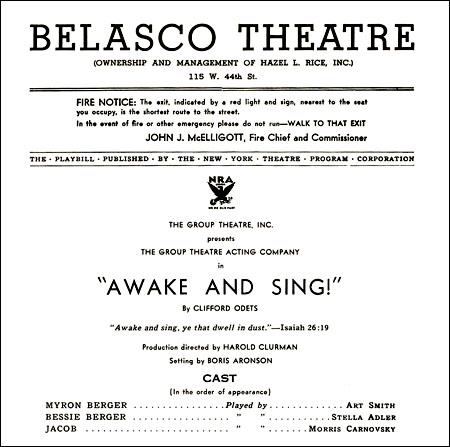 I recently posted a week’s worth of almanac entries drawn from The Collected Works of Harold Clurman, an eleven-hundred-page anthology devoted mainly but by no means exclusively to the drama criticism of a man who is better known as a director. In addition to co-founding the Group Theatre in 1931, Clurman directed the Broadway premieres of Arthur Miller’s All My Sons and After the Fall, Clifford Odets’ Awake and Sing! and Golden Boy, William Inge’s Bus Stop, Carson McCullers’ The Member of the Wedding, and Eugene O’Neill’s A Touch of the Poet. He was, in short, a first-tier theatrical professional–yet he also spent most of the second of his life doubling as a working drama critic, and his reviews, as I discovered when I read them in bulk last week, are as fresh and instructive today as they were when they were originally published in The New Republic and The Nation between 1948 and Clurman’s death in 1980.
I recently posted a week’s worth of almanac entries drawn from The Collected Works of Harold Clurman, an eleven-hundred-page anthology devoted mainly but by no means exclusively to the drama criticism of a man who is better known as a director. In addition to co-founding the Group Theatre in 1931, Clurman directed the Broadway premieres of Arthur Miller’s All My Sons and After the Fall, Clifford Odets’ Awake and Sing! and Golden Boy, William Inge’s Bus Stop, Carson McCullers’ The Member of the Wedding, and Eugene O’Neill’s A Touch of the Poet. He was, in short, a first-tier theatrical professional–yet he also spent most of the second of his life doubling as a working drama critic, and his reviews, as I discovered when I read them in bulk last week, are as fresh and instructive today as they were when they were originally published in The New Republic and The Nation between 1948 and Clurman’s death in 1980.
Needless to say, no reputable magazine or newspaper would now allow Clurman to write drama reviews while simultaneously working as a Broadway director. Is arts journalism in America better off as a result of this change in ethical standards? I very much doubt it–and thereby hangs a “Sightings” column. In Saturday’s Wall Street Journal I take a closer look at Clurman’s criticism. What made it so good? To find out, pick up a paper on Saturday and see what I have to say.
UPDATE: Read the whole thing here.
UPDATE: Yes, I know, Clurman produced Miller’s All My Sons, he didn’t direct it. Elia Kazan did, and he also staged After the Fall (Clurman was involved with the first production, but in a different capacity). My mistake–I had a fit of absentmindedness. These things happen, arrgh.
* * *
Harold Clurman talks about the state of American theater in the Seventies:
Terry Teachout on the arts in New York City
An ArtsJournal Blog
